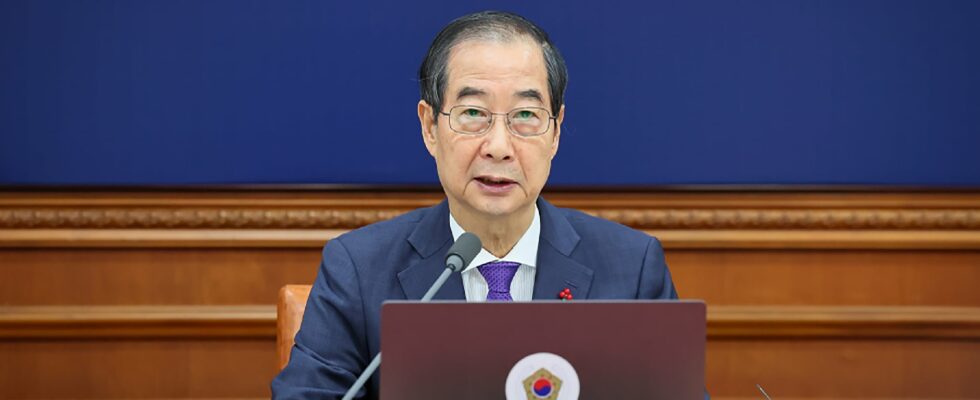South Korea’s main opposition party announced Tuesday (December 24) its intention to have Parliament impeach Prime Minister and interim President Han Duck-soo for his refusal to enact two laws aimed at investigating ousted President Yoon Suk -yeol. The Democratic Party had given the prime minister until Tuesday to enact these two laws aimed at creating special independent commissions of inquiry, one into Yoon Suk-yeol’s failed attempt to impose martial law and muzzle the Parliament by sending the army there on December 3, and the other on accusations of corruption against his wife, Kim Keon-hee.
At a cabinet meeting on Tuesday, Han Duck-soo, acting president since Yoon Suk-yeol was impeached by Parliament on December 14, announced that he was refusing to accede to the opposition’s request, saying that such laws must be the subject of cross-party consensus. “We have no choice but to interpret this as his intention to continue the rebellion through delaying tactics,” National Assembly opposition leader Park Chan-dae said. during a press conference.
After having indicated that he wanted to table a motion to this effect on Tuesday, he finally clarified at the end of the day that he had decided to wait until Thursday. If this procedure succeeds, it will be the first impeachment of an interim president after that of the titular president in the history of South Korea.
Two-thirds majority or simple majority?
South Korea’s Constitution provides that the National Assembly can remove the president by a two-thirds majority vote, and the prime minister and other government members by a simple majority. The opposition, which has 192 seats out of 300 in the Assembly, says it only needs a simple majority to depose Han Duck-soo, since he is only prime minister. The ruling People Power Party (PPP) instead maintains that a two-thirds majority is necessary, since Han Duck-soo is interim president.
Yoon Suk-yeol, suspended, officially remains the president of the country pending a ruling from the Constitutional Court confirming or overturning the decision of the deputies. He is also under joint investigation by the police, the Ministry of Defense and the anti-corruption agency for “rebellion”, a crime punishable by death.
The Corruption Investigation Bureau, which centralizes investigations, summoned him for a first interrogation on December 25 at 10:00 a.m. (2:00 a.m. French time) on these events which stunned the country. But the Bureau announced Monday that its summons, mailed to both Yoon Suk-yeol’s home and office, had been refused by the recipient. An email also returned to its sender without it being possible to determine whether it had been read or not. In the event that Yoon Suk-yeol refuses to appear again on December 25, the Investigation Bureau has the choice between sending a third summons or asking the courts for an arrest warrant.
